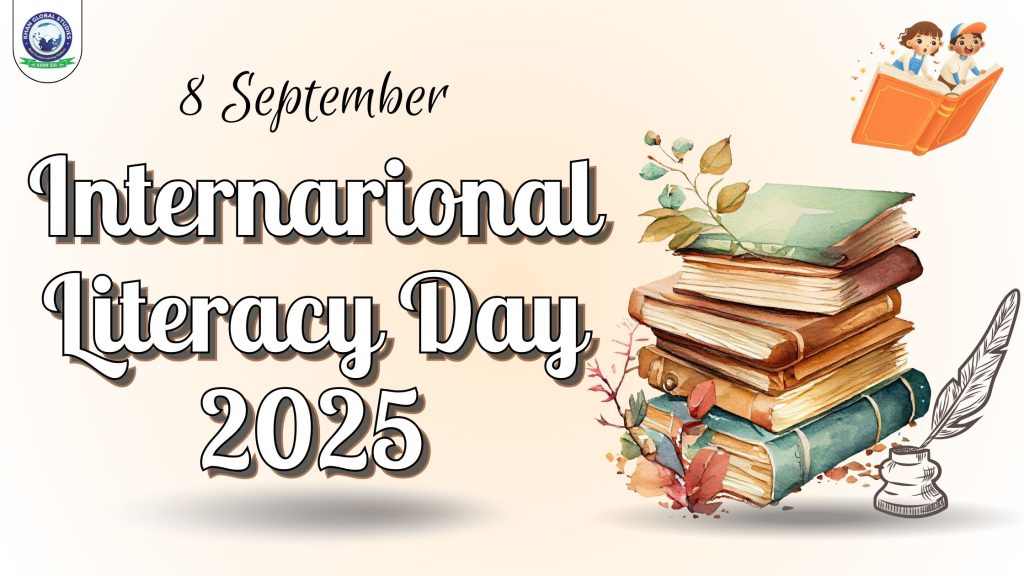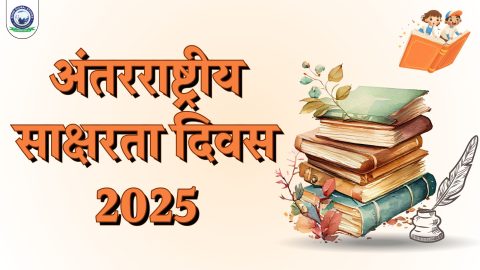Every year on September 8, the world comes together to celebrate International Literacy Day. This day draws attention to the importance of literacy as a fundamental human right and a key factor for personal, social, and economic growth. In 2025, International Literacy Day will mark its 58th anniversary, focusing on the pressing need to promote literacy in an increasingly digital world.
This article explores the background and significance of International Literacy Day, its history, why literacy is crucial, its far-reaching effects on individuals and societies, and the official theme and objectives for 2025.
What is International Literacy Day?
International Literacy Day (ILD) is observed worldwide every year on September 8. The day was proclaimed by the United Nations Educational, Scientific and Cultural Organization (UNESCO) in 1966 during its 14th General Conference to remind the global community of the importance of literacy for individuals, communities, and societies. The first official celebration took place in 1967.
International Literacy Day serves as a platform to raise awareness about the challenges of illiteracy globally and to encourage proactive efforts toward creating literate societies where every person can acquire the essential ability to read, write, and engage meaningfully with the world.
History of International Literacy Day
The idea of International Literacy Day emerged during the World Conference of Ministers of Education on the Eradication of Illiteracy, held in Tehran, Iran, in 1965. Delegates recognized that illiteracy was a critical barrier to development and dignity across nations. To highlight this issue globally, UNESCO officially designated September 8 as International Literacy Day in 1966.
Since then, the day has been observed annually to promote literacy education and encourage governments, institutions, and civil society worldwide to strengthen literacy programs and policies. Over the decades, International Literacy Day has played a vital role in shaping worldwide literacy efforts.
Importance of Literacy
Literacy is far more than the ability to read and write. It is a gateway to knowledge, empowerment, and active participation in society. Literacy enables people to access information, exercise their rights, and improve their quality of life. Here are some key reasons literacy matters:
- Fundamental Human Right: Literacy is recognized as a basic human right essential for personal development and dignity.
- Social Inclusion: Being literate allows individuals to participate fully in community, democracy, and social affairs.
- Economic Growth: Literate people have better employment opportunities and can contribute more effectively to the economy.
- Health and Well-being: Literacy improves access to healthcare information, enabling better health choices and outcomes.
- Education Foundation: Literacy is the foundation for lifelong learning and skill development.
- Bridging Inequality: Addressing illiteracy helps reduce poverty and promotes gender equality.
Despite progress, UNESCO estimates over 739 million adults worldwide still lack basic literacy skills as of 2024, making literacy promotion an ongoing global challenge.
Effects of Literacy on Individuals and Society
The impact of literacy extends beyond individual capabilities to influence entire communities and nations. Understanding these effects highlights why literacy is a priority for development:
Positive Effects of Literacy
- Empowerment and Independence: Literate individuals can make informed decisions, access services, and advocate for their rights.
- Economic Opportunities: Literacy enhances employability and earning potential, lifting families out of poverty.
- Improved Health Outcomes: Understanding medical instructions, nutrition, and hygiene contributes to healthier lives.
- Social Cohesion: Literacy fosters communication, cultural understanding, and peaceful coexistence.
- Stronger Democracies: Literate citizens participate actively in voting, governance, and civic responsibilities.
Negative Effects of Illiteracy
- Social Exclusion: Illiterate people often face discrimination, isolation, and limited social mobility.
- Persisting Poverty: Without literacy skills, individuals struggle to find stable employment or improve economic status.
- Poor Health: Illiteracy leads to misunderstanding health advice, resulting in adverse health conditions.
- Intergenerational Impact: Parents’ low literacy adversely affects children’s educational success and overall growth.
- Digital Divide: In the digital age, illiteracy marginalizes people further by limiting access to digital tools and information.
International Literacy Day 2025 Theme
The theme for International Literacy Day 2025 is “Promoting Literacy in the Digital Era.”
In today’s world, literacy goes beyond reading and writing on paper. Digital literacy—the ability to access, understand, evaluate, and create digital content safely—is key for learning, working, and socializing. The theme highlights the opportunities and challenges the digital revolution brings for literacy education worldwide.
While digital tools can greatly enhance learning and inclusion, those lacking basic literacy skills risk being doubly marginalized: excluded from both traditional literacy education and the benefits of the digital age. The 2025 observance urges efforts to bridge this gap, ensuring everyone gains the skills to thrive in a digital society.
Objectives of International Literacy Day 2025
The overarching aims of International Literacy Day 2025 include:
- Raise Awareness: Mobilize society and policymakers about the critical importance of literacy and digital literacy as rights and tools for development.
- Promote Inclusive Education: Support access to literacy education for marginalized groups, including women, children, and rural communities.
- Enhance Lifelong Learning: Encourage continuous skill development in a rapidly evolving digital world.
- Foster Global Collaboration: Unite governments, NGOs, and educational institutions in coordinated efforts to eradicate illiteracy.
- Address the Digital Divide: Highlight the need for equitable access to digital tools, training, and safe digital content.
- Empower Individuals: Equip learners with the literacy skills needed to participate fully in economic, social, and cultural life.
How to Celebrate International Literacy Day?
Individuals, schools, communities, and organizations can observe International Literacy Day in many meaningful ways:
- Host reading and writing workshops or literacy drives.
- Organize storytelling and read-aloud sessions for children.
- Promote digital literacy training programs.
- Support local libraries or donate books to underserved areas.
- Raise awareness through social media campaigns using official hashtags.
- Encourage adult education and skill-building classes.
- Participate in global dialogues and webinars organized by UNESCO and partners.
Frequently Asked Questions (FAQs)
Q1: When is International Literacy Day observed?
A: International Literacy Day is observed annually on September 8.
Q2: Who established International Literacy Day?
A: UNESCO established International Literacy Day in 1966, and it was first celebrated in 1967.
Q3: Why is literacy important?
A: Literacy is crucial because it empowers individuals, promotes social inclusion, supports economic growth, improves health outcomes, and is a fundamental human right.
Q4: What is the theme for International Literacy Day 2025?
A: The theme is “Promoting Literacy in the Digital Era,” focusing on the need for literacy skills in a technology-driven world.
Q5: How many people are still illiterate globally?
A: As of recent UNESCO reports, approximately 739 million adults worldwide lack basic literacy skills.
Q6: How can I participate in International Literacy Day?
A: You can participate by organizing reading events, supporting literacy initiatives, raising awareness online, and helping provide access to education.
Q7: What is digital literacy?
A: Digital literacy is the ability to find, understand, evaluate, create, and communicate information using digital technology safely and responsibly.
International Literacy Day 2025 calls us all to recognize the power of literacy and the urgent need to make it accessible in the digital age. By promoting literacy, we promote human dignity, equality, and sustainable development for a better future.





